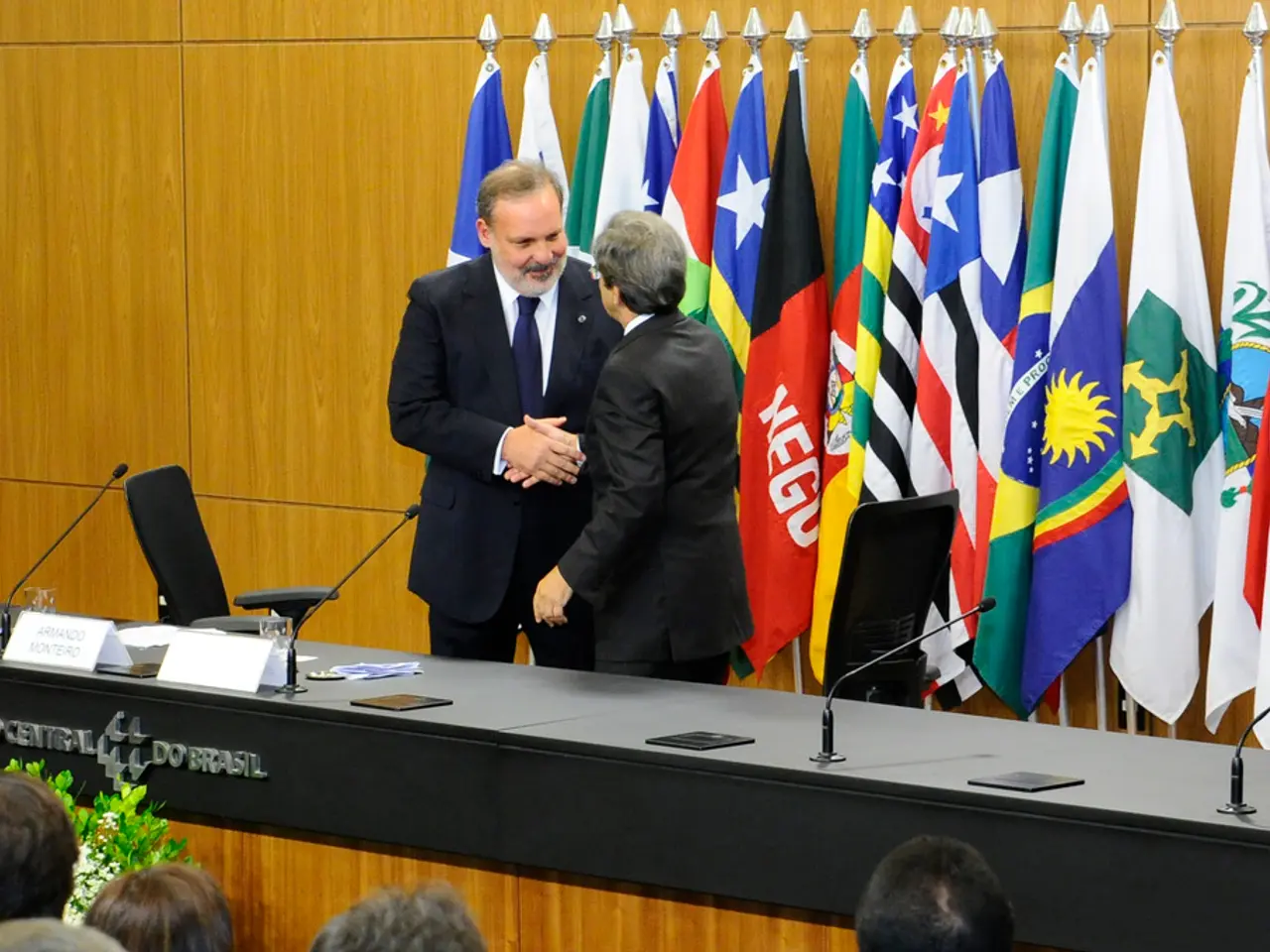Chancellor's Discourse on Affection
Last night, the political landscape of Germany shifted as Olaf Scholz (SPD) and Friedrich Merz (CDU) faced off in a heated debate. This duel, moderated by Marion Horn and Jan Philipp Burghard, aimed to reveal the human side of the candidates and create moments of unfiltered authenticity.
Rhetorical Evolution and Differences
Throughout the debate, Scholz and Merz's distinct ideological positions and rhetorical styles were on full display.
Olaf Scholz has positioned himself as a pragmatic, steady leader, continuing a largely centrist, Social Democratic direction. His party, despite a historic vote decline to 16%, managed remarkable negotiating leverage in coalition talks, defending welfare policies such as the Bürgergeld system without cuts and maintaining social spending levels. Scholz’s rhetoric tends to focus on stability, social justice, and continuity, portraying coalition governance as a balancing act that yields policy "gold" even when electorally punished.
Friedrich Merz, on the other hand, represents the conservative CDU, championing neoliberal reforms: slashing business taxes, reforming welfare, tightening immigration, and reducing bureaucracy. His rhetoric is more confrontational and reformist, promising decisive change within 100 days of office. However, his tenure has been marked by tensions—both with coalition partners like the SPD who oppose these reforms, and within his own ranks.
Potential for Synergy
Despite their differences, there is potential synergy as political allies in managing Germany’s complex coalition politics. The coalition achieved significant fiscal policy wins, such as unprecedented debt-financed economic support packages and continued support for Ukraine, suggesting pragmatic cooperation beyond rhetoric.
Their debate and duel rhetoric illustrates the challenge: Merz pushes for clear conservative reforms, Scholz for social democratic steadiness, but both operate within a context that demands compromise. The push and pull between them highlights democratic tension but also the potential for harnessing their differing strengths—Scholz’s coalition-building acumen and Merz’s decisive reformism—to govern effectively amid rising far-right electoral challenges.
A Unique Ability to Work Together
The duels have shown that Scholz and Merz may have a unique ability to work together, given their complementary styles and growing mutual respect. Friedrich Merz struggled to keep the Chancellor at bay with his concise, precise, and sharp rhetoric. Olaf Scholz, however, has evolved his rhetoric since the first duel, becoming more confident, clear, and passionate.
During the duel, Olaf Scholz spoke about love, a rare display of emotion in political debates. This shift in Scholz's rhetoric, along with Merz's assertive reformist stance, has led to a proposal for the two leaders to set aside their egos and work together on what the country needs now.
The duel between Scholz and Merz was characterized by its singularity and the tension it creates. Nevertheless, it can be seen as a journalistic achievement due to its portrayal of the candidates' humanity. As the political landscape in Germany continues to evolve, the potential alliance between Scholz and Merz remains a notable aspect to watch.
- In the realm of entertainment and pop-culture, the debate between Olaf Scholz and Friedrich Merz could be likened to a dramatic, paced-out TV series or a tense movie political thriller, as they employ rhetorical strategies reminiscent of scripted dialogues, each with a distinct ideological position and unique style.
- Amidst the social-media buzz and discussions on political debates, Scholz and Merz's duel served as a testament to the evolving nature of modern-day rhetoric, with Scholz embracing a more emotional approach, speaking about love, and Merz maintaining a firm, confrontational stance, a juxtaposition that highlights the synergy of diverse perspectives in creating robust political discourse.







